From the fall-out of the pandemic to the interlocking cost of living and energy security crises currently gripping the world, it has been fascinating to see the world’s richest governments bending over backwards to help fossil fuel companies. Meanwhile households are battling a cost of living crisis and the climate crisis is raging on, threatening lives and livelihoods everywhere – from north to south.
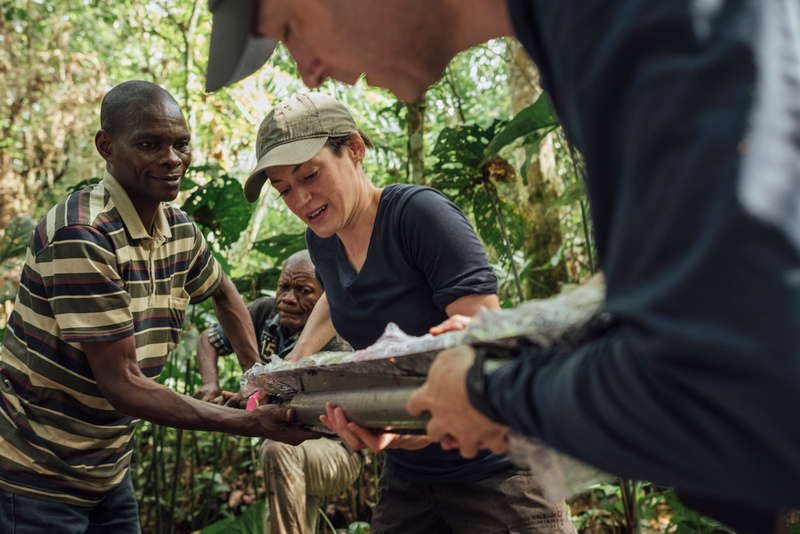
Congo Basin Experts from the UK and DRC takes first samples from the Peatland. Left to right: Dr. Corneille Ewango (Congo Forest Expert from University of Kinsangani, DRC), Dr. Greta Dargie (Congo Peatlands Expert from University of Leeds, UK), Dr. Simon Lewis (Prof. Global Change Science from University of Leeds, UK). A team from Greenpeace Africa are working with local partners to conduct scientific research in the village of Lokolama, 45 km from Mbandaka. The team aim to identify the presence of tropical peatlands in the region, and to measure its depth.
After oil demand and prices briefly fell during the lockdowns of 2020, we’re seeing Big Oil enjoying unprecedented war-time profits, as Russia’s invasion of Ukraine drives up prices. Recall BP’s boss Bernard Looney crassly comparing his company to a “cash machine”. This latest boon for fossil fuel companies make the pledges from last year’s COP26 climate talks in Glasgow seem like a distant memory. Indeed, a £420m ($500m) deal for the Democratic Republic of Congo [DRC] has become increasingly useless in protecting its forests, with oil companies set to cash in and eventually paved the way for more forest destruction.
The DRC, home to most territory of the world’s second largest rainforest, prides itself in being a “solution country” for the climate crisis. However, the country, which already sees deforestation rates second only to Brazil, has already stated last year its intention to lift a 20 year ban on new logging concessions.
As of April this year, the DRC is set on trashing huge areas of the rainforest and peatland to auction 16 oil blocks. Oil exploration and extraction would not only have devastating impacts on the health and livelihoods of local communities, but the oil driven “resource curse” raises the risk of corruption and conflict. This auction also makes a mockery of the DRC’s own climate commitments to help keep global warming under 1.5c, by sacrificing parts of a mega-peatland complex, often labelled a carbon bomb, along with nine Protected Areas (contrary to denials by the Congolese Oil Ministry).
Instead of steering us into a climate catastrophe,the international community must stop serving as the handmaiden of Big Oil. Instead, let’s see them focus on ending energy poverty by supporting clean, decentralised renewable energies. Whether it’s the cost of living crisis unfolding on our doorsteps or climate destruction sweeping the globe – the solutions are the same.
Congolese President Felix Tshisekedi must abandon the colonial notion of development through extractivism and look at its legacy in Africa, which has only deepened poverty and hardship for Africans. It has only served to enrich a small and closed circle of local beneficiaries and foreign nations.
It is telling that Africa’s largest oil producer, Nigeria, is also the one with the highest number of people suffering extreme poverty (just behind India) and with the highest number of people without access to electricity. Instead of following an economic model that hurts both people and nature, the DRC should resist pressures from greedy multinationals and prioritise connecting 72 million of its people to the grid.
You can bet Big Oil is salivating at the chance to seize yet more profits from climate destruction. Yet shamefully, none of the eight members who are part of the Central African Forest Initiative that is paying £420m of taxpayers’ money to protect DRC’s forests – the UK, the EU, Belgium, France, Germany, the Netherlands, Norway, South Korea – have uttered one word against this prospective oil auction. That’s not surprising, given the “forest protection” deal does nothing to prevent oil activity in peatlands or anywhere else.
As Boris Johnson approaches his final weeks in office, his own environmental legacy and that of the COP26 risk being all targets, no action. Speeches are made and press releases are disseminated, while the rights of vulnerable people everywhere are being run over by short-sighted extractive industries.
Instead I would like to see the UK government, as the host of the COP26 and one of the chief architects behind the DRC forest protection deal, to work with my country to move beyond the model of destructive extractivism and leapfrog towards a future of renewable and clean energy for all
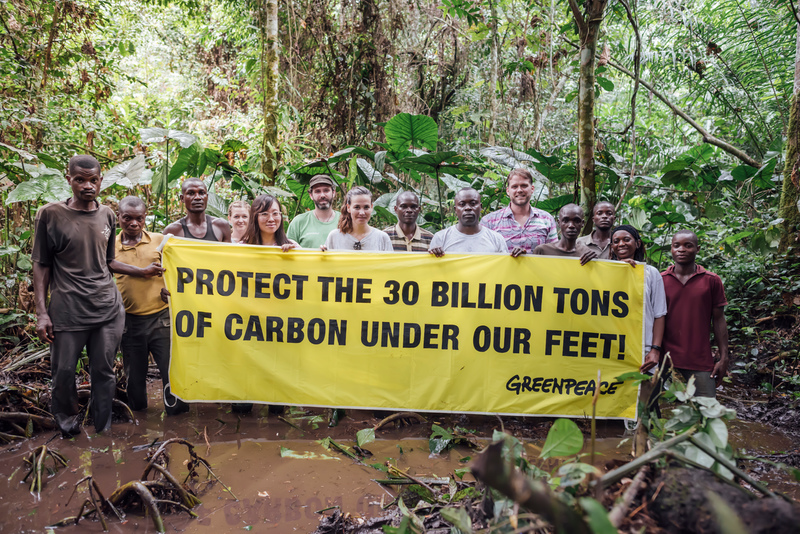
Greenpeace members and campaigners holding a banner together with the local community of Lokolama in the Congo Basin Peatland – ‘Protext the 30 Billion Tons of Carbon under our feet!’ A team from Greenpeace Africa are working with local partners to conduct scientific research in the village of Lokolama, 45 km from Mbandaka. The team aim to identify the presence of tropical peatlands in the region, and to measure its depth.
Op-Ed orginally published here
Irène Wabiwa Betoko, based in Kinshasa, is the International Project Leader for the Congo Basin forest, Greenpeace Africa

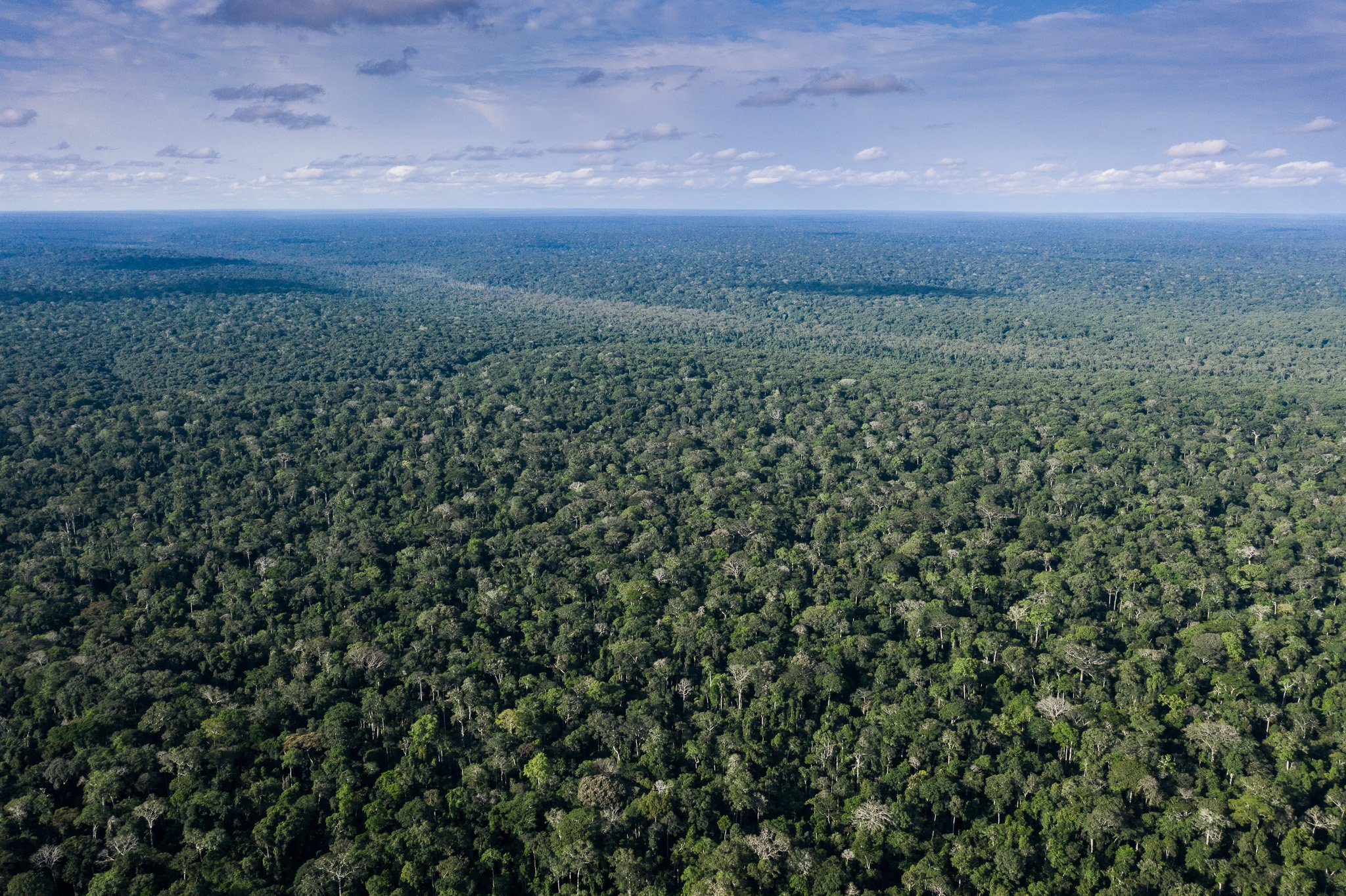
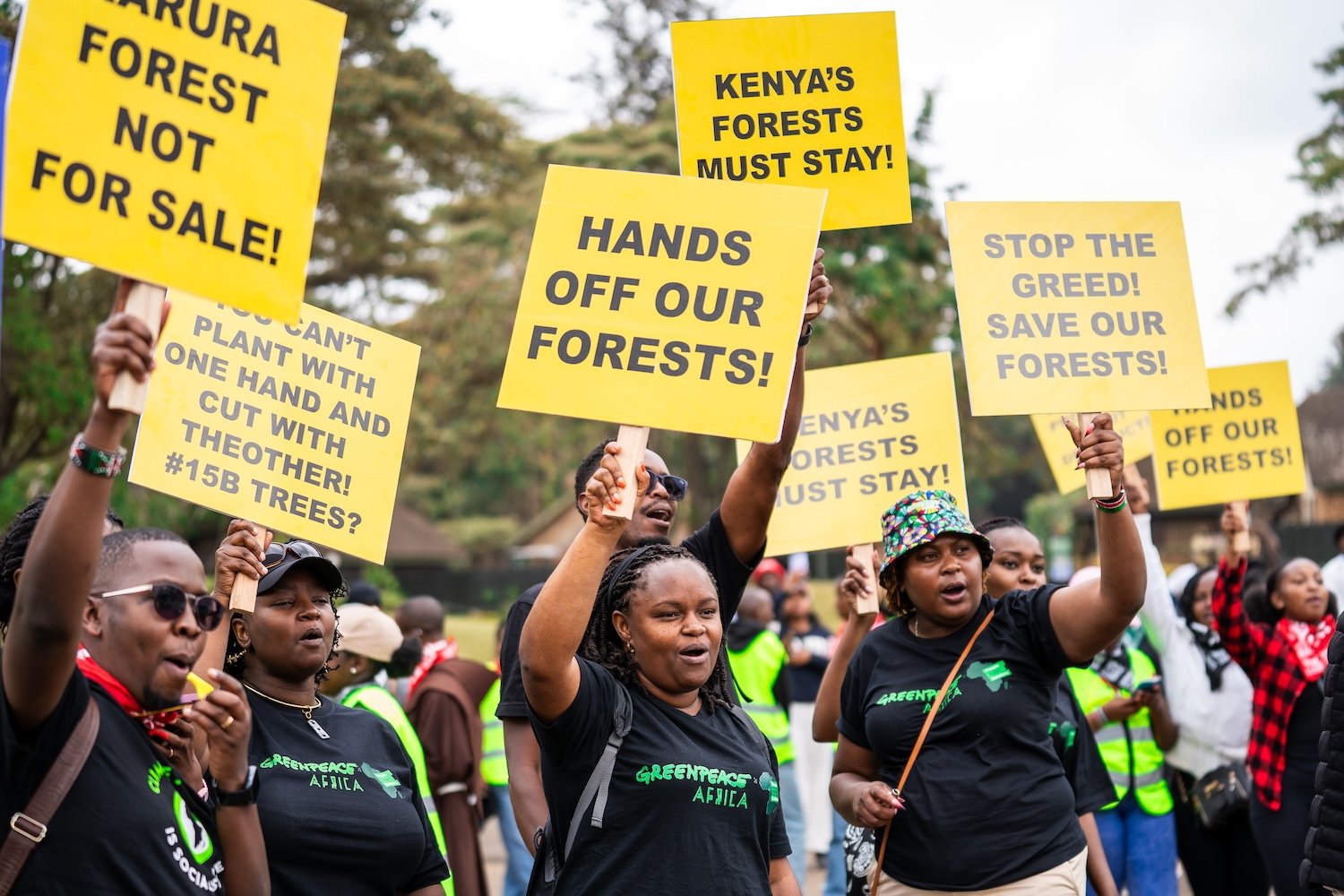
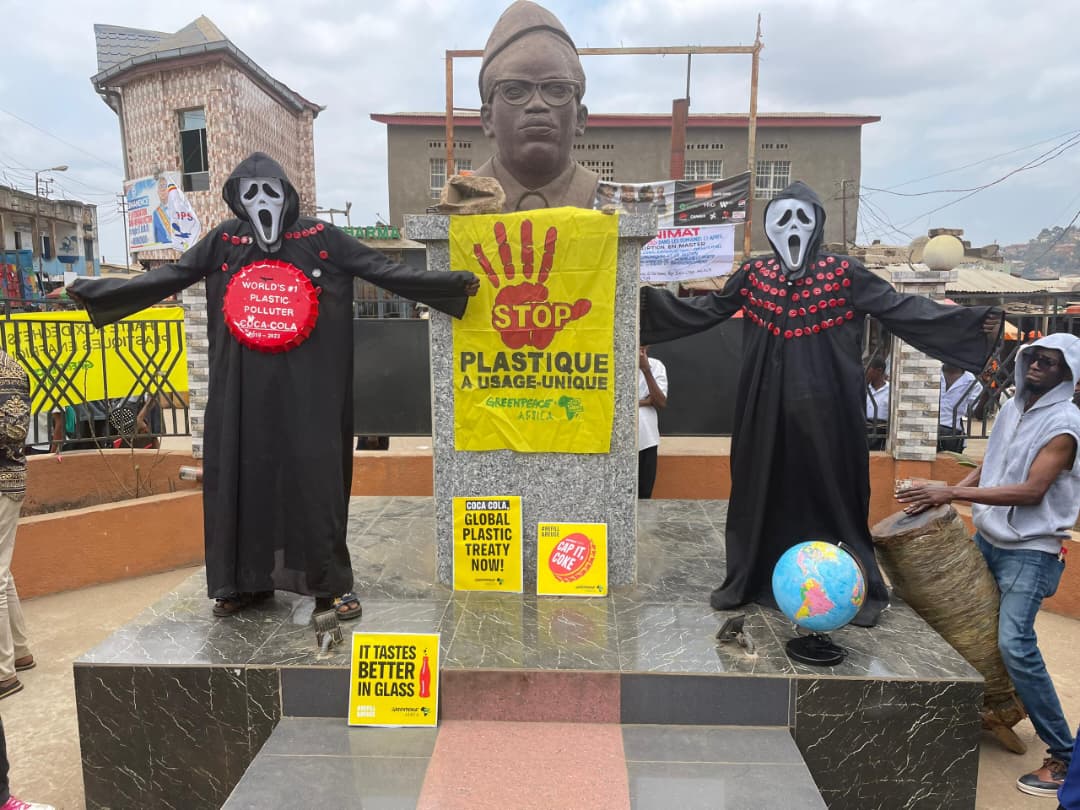
Discussion
CONSULT PRESIDENT BIDEN, A BIGGER DEAL OF BILLIONS NEEDS TO BE OFFERERED TO THE D R CONGO PRIMINISTER IN AN AGREEMENT THE RAINFORREST IS PROTECTED FULLY AND NOT SOLD AT AUTION? THE MONEY OFFERED SHOULD GO TO REBUILD AGRICULTURE AND PROVIDE FERTILE LAND/EQUIMENT SO THAT THE POOR CONGO POPULATION CAN LIVE AND SERVIVE WITHOUT HUNGER. THE USA SPENDS 600 BILLION DOLLARS A YEAR ON DEFENCE AND" THIS IS DEFENCE."
Thank you for your comment. No, money will not repair the ecological damage; Oil is hazardous and has significant potential to damage the environment and put surrounding communities in peril. There is always the potential for destroying agricultural land and natural forests by oil spills, groundwater contamination, and offshore oil spills.